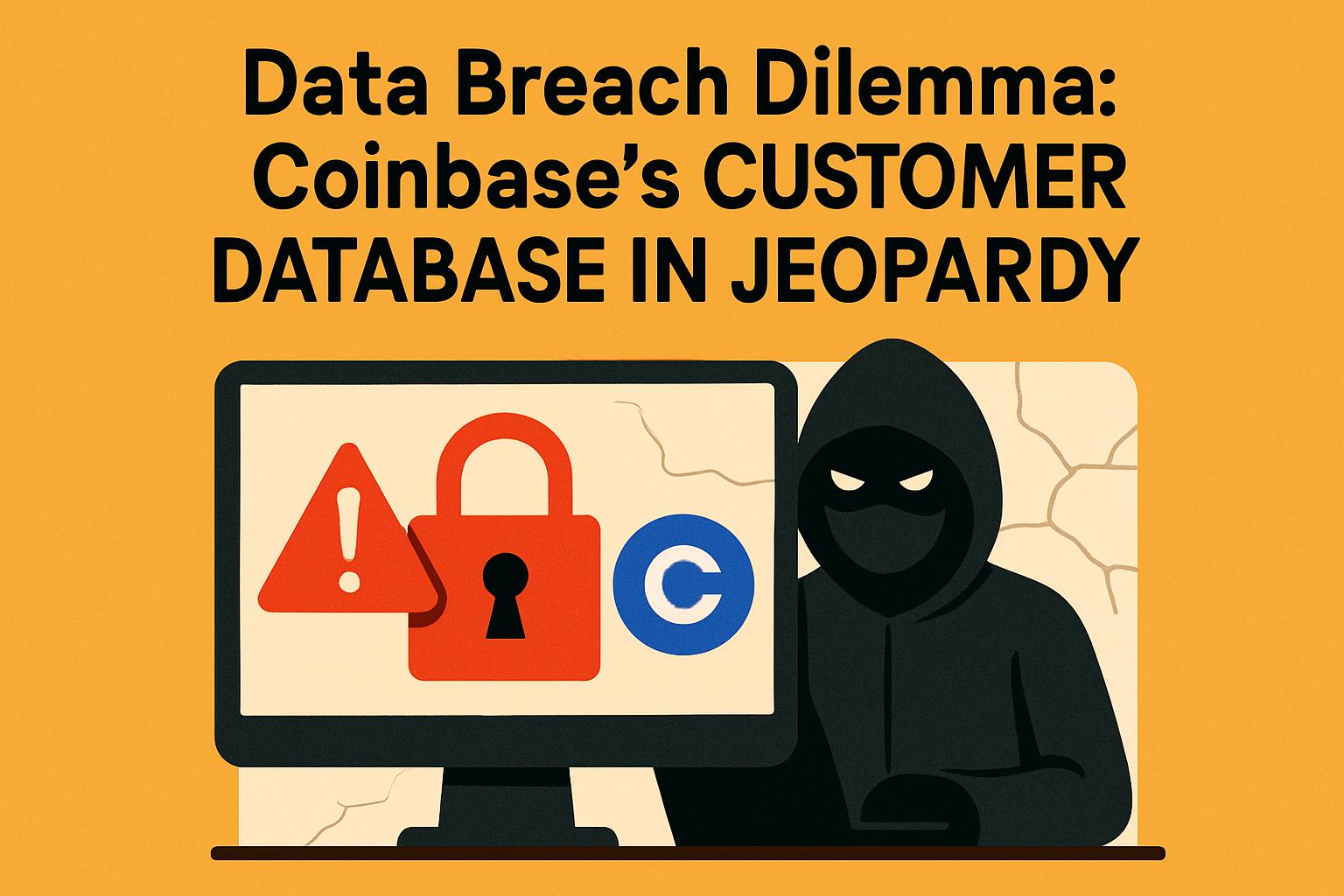In a startling revelation, Coinbase finds itself at the center of a massive data breach controversy, unfurling a saga that sheds light on significant vulnerabilities within the cryptocurrency exchange’s operations. The leak, as exposed through court documents, involves a large-scale internal theft conducted by an employee of TaskUs, a third-party service provider for Coinbase.
The Breach Unveiled: A Digital Heist
Coinbase, one of the world’s leading cryptocurrency exchanges, discovered that Ashita Mishra, an employee of TaskUs headquartered in Texas, exploited her role to illegally siphon sensitive information from nearly 70,000 customers. Mishra amassed critical data such as Social Security numbers and bank account details, selling the information to hacker groups at a steep price per instance.
The revelation highlights a chilling reality: personal data security can be easily compromised when placed in the hands of outsourced handling services. TaskUs employees were allegedly organized in a concerted effort, coordinating a systematic operation that funneled confidential data to a hacker group known as “the Comm.”
Corporate and Legal Responses
The timing of these events has embroiled both Coinbase and TaskUs in a legal maelstrom, with contradicting accounts surfacing. Coinbase originally claimed their data breach commenced in December 2024, yet the lawsuit indicates illicit activities began as early as September. Further complicating matters, TaskUs alleged Coinbase’s own employees may have played a role in perpetuating the theft, although specifics remain scarce.
In response, Coinbase is taking a proactive approach, not only terminating its contract with TaskUs but also implementing enhanced internal controls. Furthermore, the exchange launched a $20 million bounty program as an incentive for information leading to the hacker group’s identification.
A Ripple Effect Through the Crypto Industry
The breach underscores the broader security challenges faced by the cryptocurrency sector, where centralized control over sensitive data poses significant risks. This incident serves as a stark reminder of the need for robust cybersecurity frameworks as the industry continues to grow. Both consumers and enterprises are faced with the pressing question: can they trust third-party operators with their most critical information?
Coinbase’s ordeal is a defining case of vulnerabilities in the crypto market, drawing attention to the delicate balance needed between growth and security. Amid ongoing investigations and potential shifts in regulatory landscapes, the exchange’s ability to navigate the crisis might set precedence for the industry’s future approach to managing personal data risks effectively.

![[News] Bitcoin at a Turning Point? 10x Research Signals a Bullish Macro Shift Ahead](https://cryptoexplores.com/wp-content/uploads/2025/06/new20250616.jpg)
![[News] Binance Lists $HOME, the Gas-Free, Bridge-Free All-in-One DeFi App](https://cryptoexplores.com/wp-content/uploads/2025/06/news20250617.jpg)